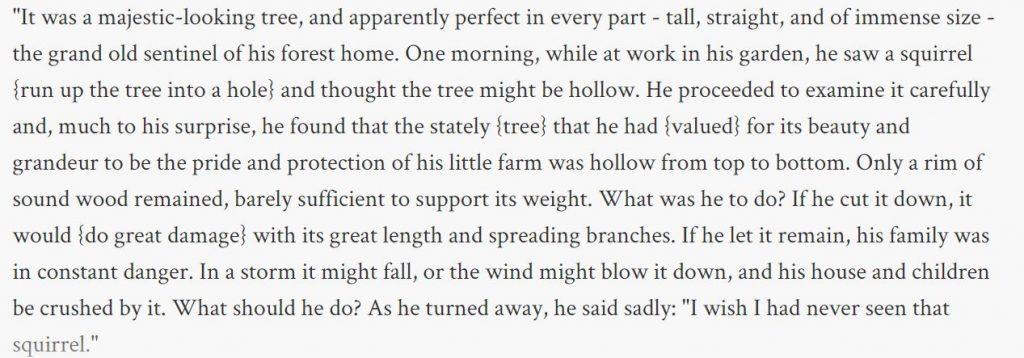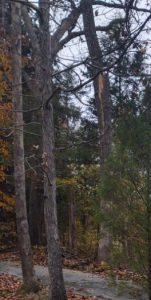Dilemma
The Farmer and the Tree
In the course of my life, I have at times been a reader of many books. Work was done on our house recently, and the contractor noted the number of books we have and commented on the numerous bookshelves filled with books. They saw a fraction of the books we have in the house. I have many business and tech books in the place where I work, but while that is what I frequently write about with others, my reading interests extend beyond these topics, and that is the genesis of this post.
I have a collection of books on Abraham Licoln. I recognize the good things Liconln did while in office. I have a few books on Lincoln, Team of Rivals by Doris Kearns Goodwin as well as Lincoln On Leadership by Donald T. Phillips. Team of Rivals is not a casual read, it is 944 pages long, worth the read for sure, but it does require an investment in time.
There are many of the stories for which Lincoln was known in these books (the chin fly is also a good story). Stories are a good way to illustrate some point, principle, or perspective with clarity. Another of my favorites is the story of the majestic tree and the farmer.

From Lincoln on Leadership by Donald T. Phillips, Warner Books.
There are Reasons for Stories

Lincoln told stories to illustrate a point, often subtly that people could quickly understand, hopefully. This story was a response to the learning that there were people he thought to be Union loyalists, who were actually spies and providing information to the Confederacy. Essentially, he had just learned of a lack of integrity of these people. He now had a call to question the sensibility of trusting these people he theretofore had considered to be trustworthy and loyal. What do you do when you learn team members are not what they seem? What do we do when we discover a project state is not as good as it had previously been articulated?
The farmer was confronted with a dilemma, to leave the tree alone in its “majesty” would put his house and family at risk. Cutting the tree down also had associated risks with the expansive canopy. No alternative was going to be very good, thus the lament that he even saw the squirrel that led him to this dilemma. The farmer had the illusion the tree was not compromised, that it was strong. Lincoln had the illusion that his team members and constituents were loyal to the union.
There are some, seemingly positives, from not knowing a thing. Not knowing, keeps us inert or not active on that subject of that thing. We stroll through work or life with a positive attitude, there is nothing wrong. We are able to walk around believing things are okay when those things may not be well. There is nothing to worry about. However, this thing we are not worried about will likely come to some observable symptom and may be at an inopportune moment, in other words, crisis.
A healthy dose of skepticism can help from being blindsided by these events. Actively seeking these potentially unpleasant events can lead to proactive events perhaps handling the situation well before it becomes difficult to manage. Lastly, no matter how uncomfortable, we are going to have to address the issue at hand.

